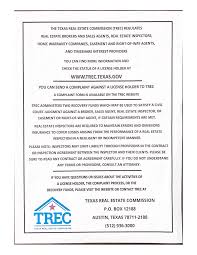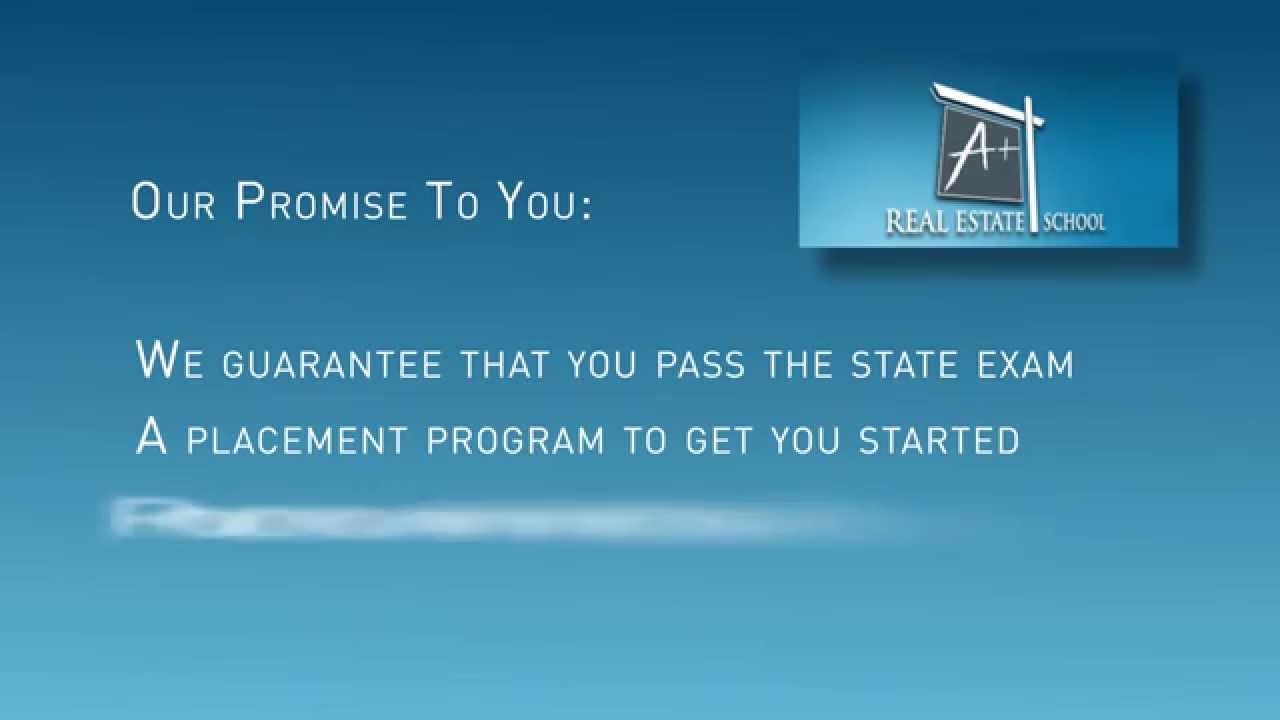
A Minnesota license can be obtained if you fulfill certain requirements. Minnesota Commerce Department strives to ensure that real estate agents are competent and capable of working in the state. These requirements include being at minimum 18 years of age and U.S. citizens, or legal aliens. Although citizenship is not an issue for most people, it could be a problem for those with criminal histories, unpaid judgments or disciplinary actions that are against their professional license. A real estate license should not be denied if you are involved in unlicensed real-estate activity.
Pre-license education
Pre-license education is a crucial part of becoming licensed in Minnesota as a real estate agent. It can increase your chances to pass the exam and prevent you from having to retake it. In Minnesota, it takes four months to become licensed as a real estate agent. Pre-licensing is contingent on passing the exam, passing the education course and being sponsored by a licensed brokerage.
An excellent way to begin your education in Minnesota for your real-estate license is to take an online pre-license course. You can complete three 30-hour courses that will help you earn your license. These courses cover topics like valuation, financing, contracts and real estate principles. Online courses are available through providers such as ContinuingEd Express. They offer both online and live streaming courses.

Continued education requirements
Minnesota real estate brokers must complete at least 15 hours of continuing education per year. It is 30 hours over a two year renewal period. There are many methods to obtain the required CE in real property, including online classes, live courses, and webinars. Kaplan offers on-demand as well as live courses to meet state continuing education requirements. Kaplan's online courses are approved for 3.75 hours of real estate CE and can also qualify for fair housing and agency credit.
Minnesota Real Estate Commission adopts a new system for real-estate CE credit. This means real estate licensees have to complete at most eight hours of continuing training in a single day. But no more than 15 hours per 24-hour period. Minnesota's continuing learning requirements require that salespersons and brokers complete a CE module before they can become licensed. These courses can be used to earn 3.75 hours CE credit. They must be completed before June 30, 20,22. An MNR Academy website allows you to complete a course online without the need for a live instructor. While most courses can be completed on your own, some are streamed live. Exam prep courses include both the national exam and the state portion of the Minnesota licensing exam.
Exam
Minnesota requires that you pass an exam to obtain a license to sell real estate. This exam helps to protect the public as it ensures that each person has a certain level or competence. The state regulatory agency sets a standard for safe practice, and the examination is designed to verify whether an individual complies with that standard. Pearson VUE administers the Minnesota real estate licensing exam.
Minnesota requires applicants for real estate licenses to have taken a prelicense course and passed a state exam. The state requires that applicants are at least 18 years of age and a legal permanent resident of the United States. Minnesota has reciprocity arrangements with several other states including Wisconsin. Minnesota does not require you to take a prelicensing program if you are a licensed agent from a reciprocal state. You can apply through the PULSE Portal and email a letter certifying your current license and pass the state portion of the exam. In Wisconsin, however, you must take a 13-hour Wisconsin-to-Minneseta prelicensing course.

Cost
A real estate license is the first step to becoming a Minnesota agent. You can complete the entire process online with the exception that you must take the exam in person. This article will give you the details of the process, including the cost and time it will take. We will also provide some resources and information about exam content.
Minnesota requires that all licensed real estate agents have completed at least 90 hours in pre-licensing training. These can be completed online or via classroom classes. Online courses on demand are often the cheapest. Three courses are usually included in a package, and they typically cost $200-$300.
FAQ
How do I get rid termites & other pests from my home?
Your home will be destroyed by termites and other pests over time. They can cause serious damage and destruction to wood structures, like furniture or decks. You can prevent this by hiring a professional pest control company that will inspect your home on a regular basis.
How can I fix my roof
Roofs can leak due to age, wear, improper maintenance, or weather issues. Repairs and replacements of minor nature can be made by roofing contractors. For more information, please contact us.
Do I need a mortgage broker?
A mortgage broker can help you find a rate that is competitive if it is important to you. Brokers have relationships with many lenders and can negotiate for your benefit. However, some brokers take a commission from the lenders. You should check out all the fees associated with a particular broker before signing up.
What's the time frame to get a loan approved?
It depends on many factors like credit score, income, type of loan, etc. It usually takes between 30 and 60 days to get approved for a mortgage.
Do I require flood insurance?
Flood Insurance protects you from flooding damage. Flood insurance protects your belongings and helps you to pay your mortgage. Find out more information on flood insurance.
How many times do I have to refinance my loan?
It depends on whether you're refinancing with another lender, or using a broker to help you find a mortgage. You can typically refinance once every five year in either case.
Can I purchase a house with no down payment?
Yes! Yes. There are programs that will allow those with small cash reserves to purchase a home. These programs include government-backed mortgages (FHA), VA loans and USDA loans. For more information, visit our website.
Statistics
- When it came to buying a home in 2015, experts predicted that mortgage rates would surpass five percent, yet interest rates remained below four percent. (fortunebuilders.com)
- 10 years ago, homeownership was nearly 70%. (fortunebuilders.com)
- Over the past year, mortgage rates have hovered between 3.9 and 4.5 percent—a less significant increase. (fortunebuilders.com)
- It's possible to get approved for an FHA loan with a credit score as low as 580 and a down payment of 3.5% or a credit score as low as 500 and a 10% down payment.5 Specialty mortgage loans are loans that don't fit into the conventional or FHA loan categories. (investopedia.com)
- Private mortgage insurance may be required for conventional loans when the borrower puts less than 20% down.4 FHA loans are mortgage loans issued by private lenders and backed by the federal government. (investopedia.com)
External Links
How To
How to manage a rental property
Renting your home can be a great way to make extra money, but there's a lot to think about before you start. These tips will help you manage your rental property and show you the things to consider before renting your home.
Here are the basics to help you start thinking about renting out a home.
-
What are the first things I should consider? Before you decide if your house should be rented out, you need to examine your finances. If you have debts, such as credit card bills or mortgage payments, you may not be able to afford to pay someone else to live in your home while you're away. Also, you should review your budget to see if there is enough money to pay your monthly expenses (rent and utilities, insurance, etc. ), it might not be worth it.
-
How much does it cost for me to rent my house? There are many factors that influence the price you might charge for renting out your home. These factors include location, size, condition, features, season, and so forth. Remember that prices can vary depending on where your live so you shouldn't expect to receive the same rate anywhere. Rightmove shows that the median market price for renting one-bedroom flats in London is approximately PS1,400 per months. This means that your home would be worth around PS2,800 per annum if it was rented out completely. This is a good amount, but you might make significantly less if you let only a portion of your home.
-
Is this worth it? Although there are always risks involved in doing something new, if you can make extra money, why not? Be sure to fully understand what you are signing before you sign anything. Renting your home won't just mean spending more time away from your family; you'll also need to keep up with maintenance costs, pay for repairs and keep the place clean. These are important issues to consider before you sign up.
-
What are the benefits? Now that you have an idea of the cost to rent your home, and are confident it is worth it, it is time to consider the benefits. Renting your home is a great way to get out of the grind and enjoy some peace from your day. It's more fun than working every day, regardless of what you choose. And if you plan ahead, you could even turn to rent into a full-time job.
-
How do I find tenants After you have made the decision to rent your property out, you need to market it properly. Listing your property online through websites like Rightmove or Zoopla is a good place to start. Once potential tenants reach out to you, schedule an interview. This will enable you to evaluate their suitability and verify that they are financially stable enough for you to rent your home.
-
How can I make sure I'm covered? You should make sure your home is fully insured against theft, fire, and damage. Your landlord will require you to insure your house. You can also do this directly with an insurance company. Your landlord may require that you add them to your additional insured. This will cover any damage to your home while you are not there. However, this doesn't apply if you're living abroad or if your landlord isn't registered with UK insurers. You will need to register with an International Insurer in this instance.
-
You might feel like you can't afford to spend all day looking for tenants, especially if you work outside the home. It's important to advertise your property with the best possible attitude. Make sure you have a professional looking website. Also, make sure to post your ads online. It is also necessary to create a complete application form and give references. While some people prefer to handle everything themselves, others hire agents who can take care of most of the legwork. It doesn't matter what you do, you will need to be ready for questions during interviews.
-
What happens after I find my tenant?After you've found a suitable tenant, you'll need to agree on terms. If you have a lease in place, you'll need to inform your tenant of changes, such as moving dates. Otherwise, you can negotiate the length of stay, deposit, and other details. While you might get paid when the tenancy is over, utilities are still a cost that must be paid.
-
How do you collect rent? When it comes time for you to collect your rent, check to see if the tenant has paid. If not, you'll need to remind them of their obligations. Before you send them a final invoice, you can deduct any outstanding rent payments. If you are having difficulty finding your tenant, you can always contact the police. If there is a breach of contract they won't usually evict the tenant, but they can issue an arrest warrant.
-
What are the best ways to avoid problems? You can rent your home out for a good income, but you need to ensure that you are safe. Make sure you have carbon monoxide detectors installed and security cameras installed. Check with your neighbors to make sure that you are allowed to leave your property open at night. Also ensure that you have sufficient insurance. Do not let strangers in your home, even though they may be moving in next to you.